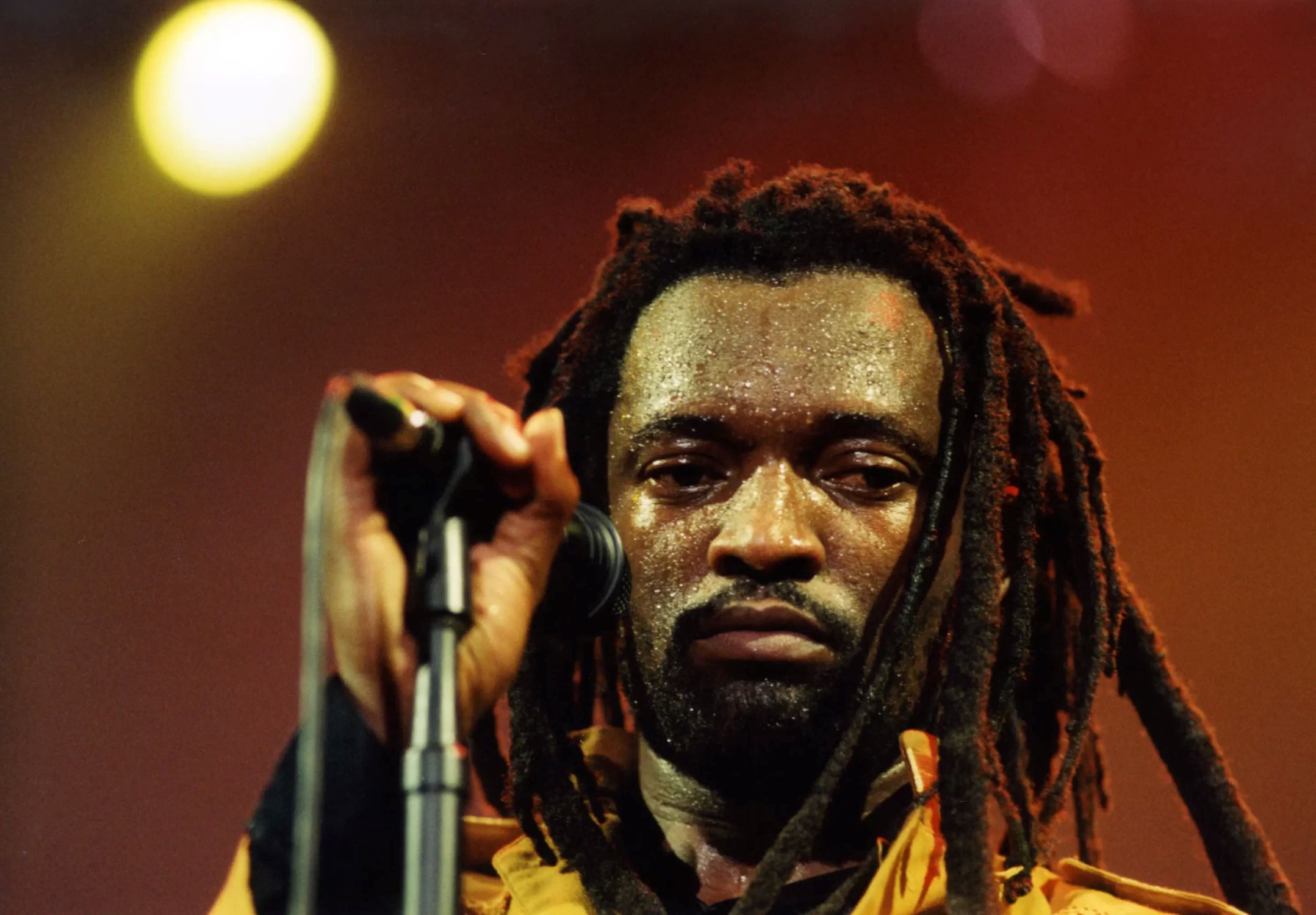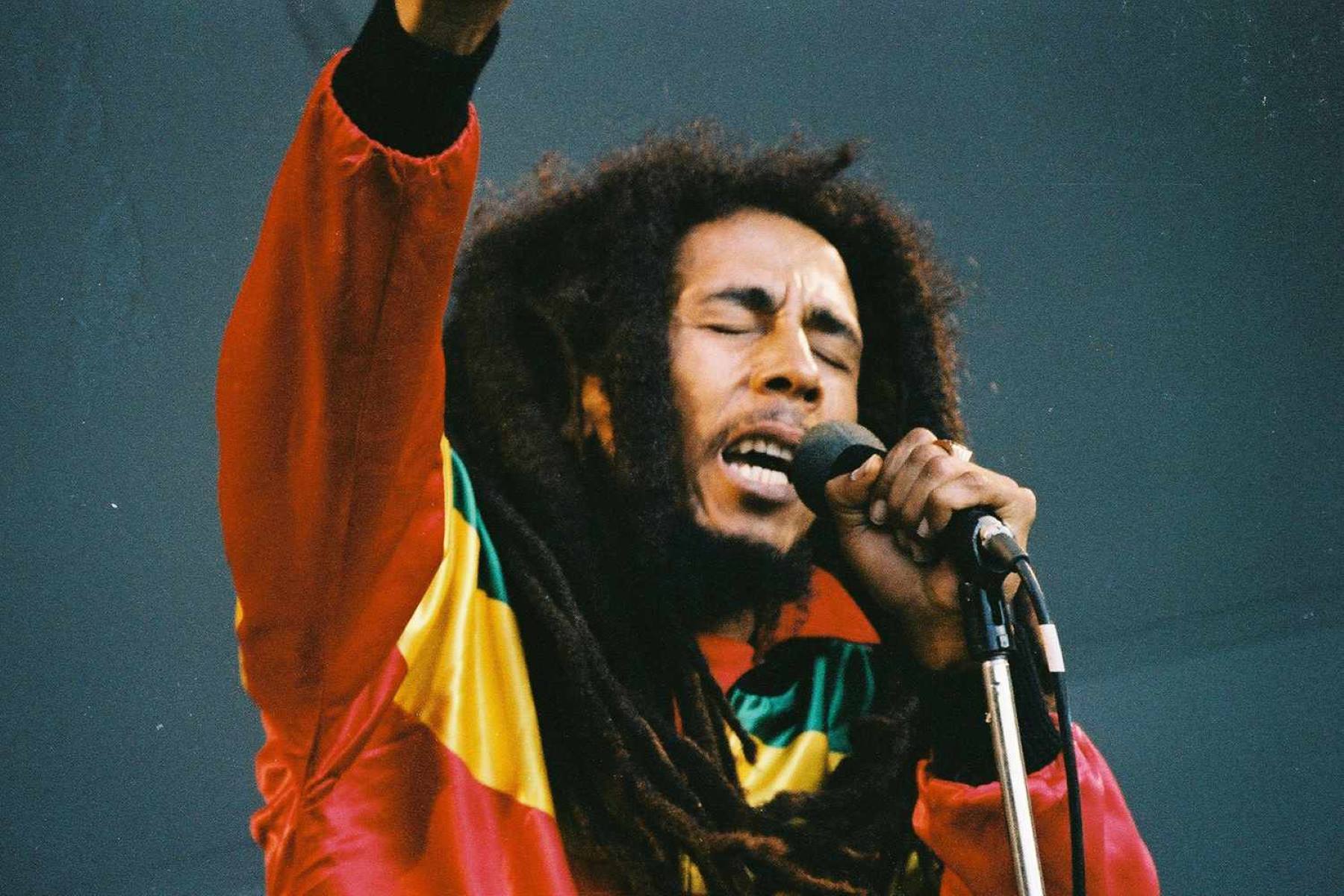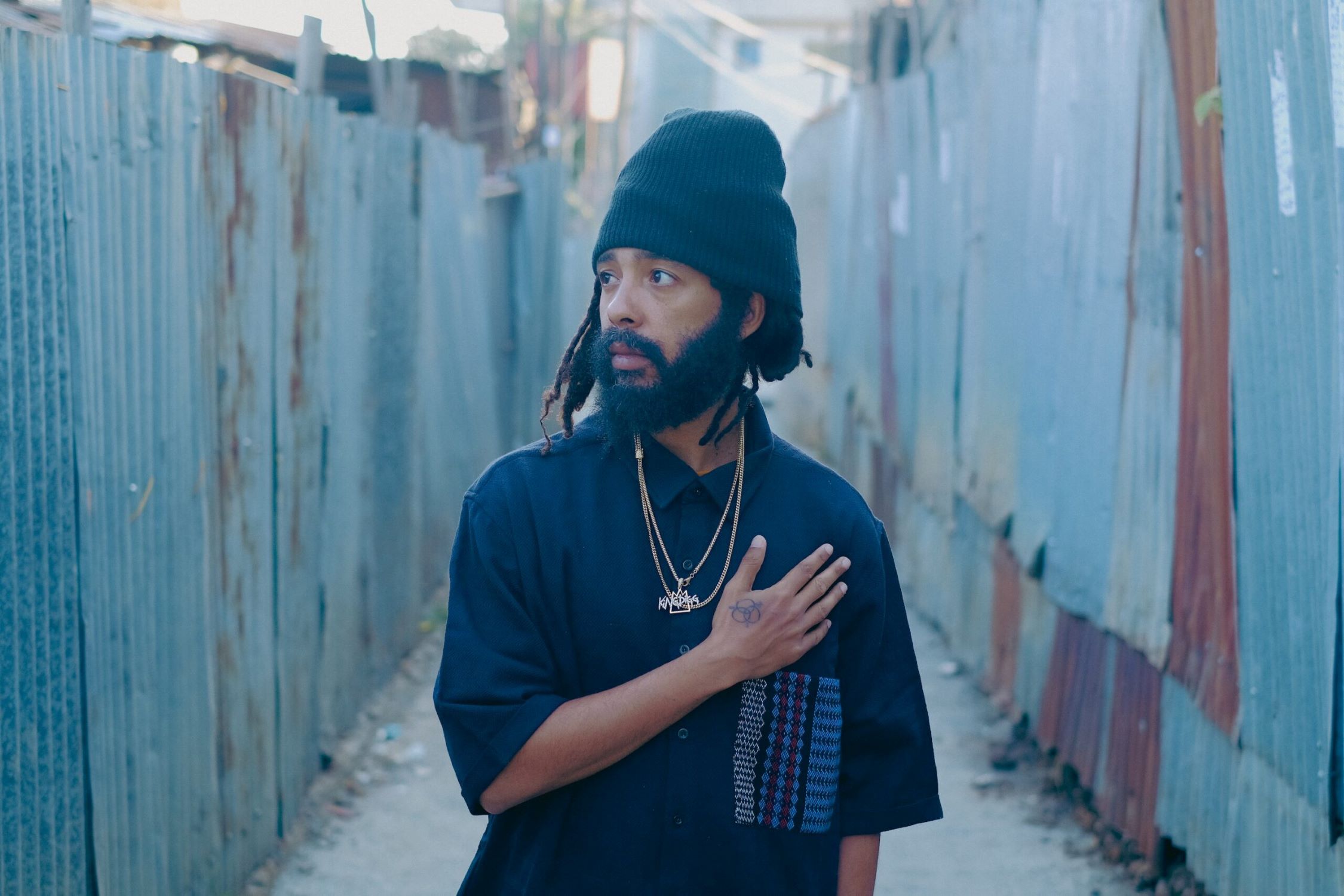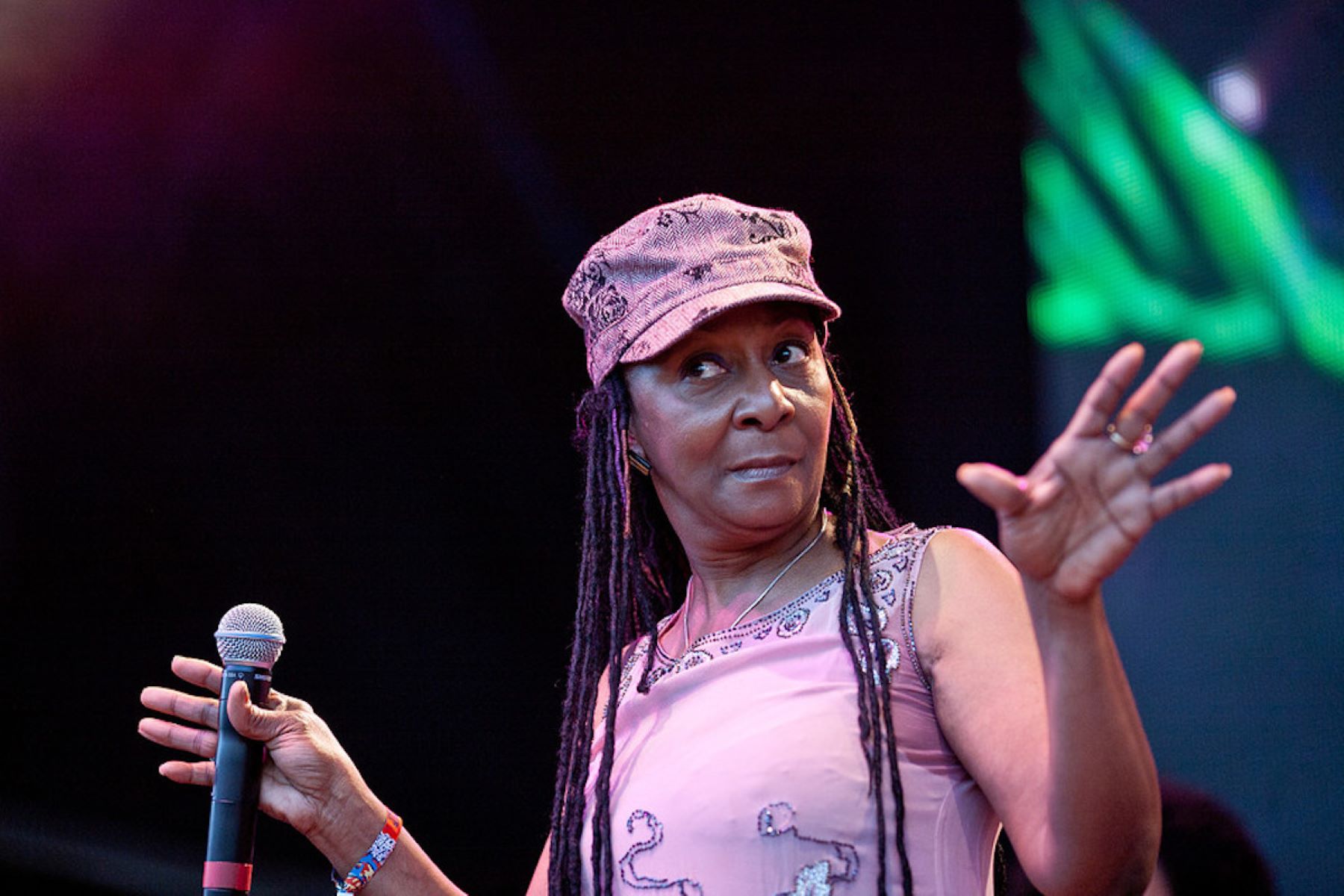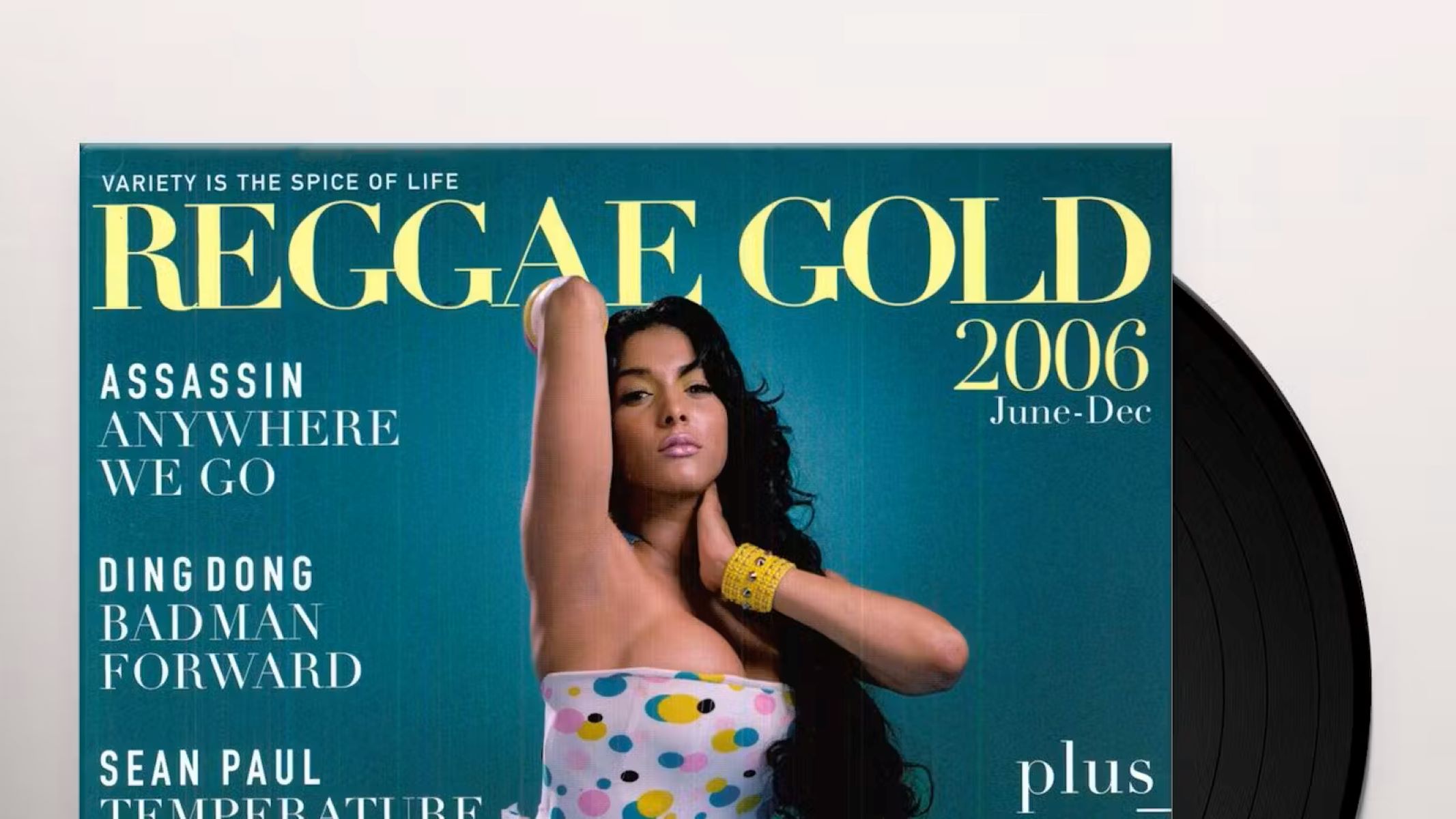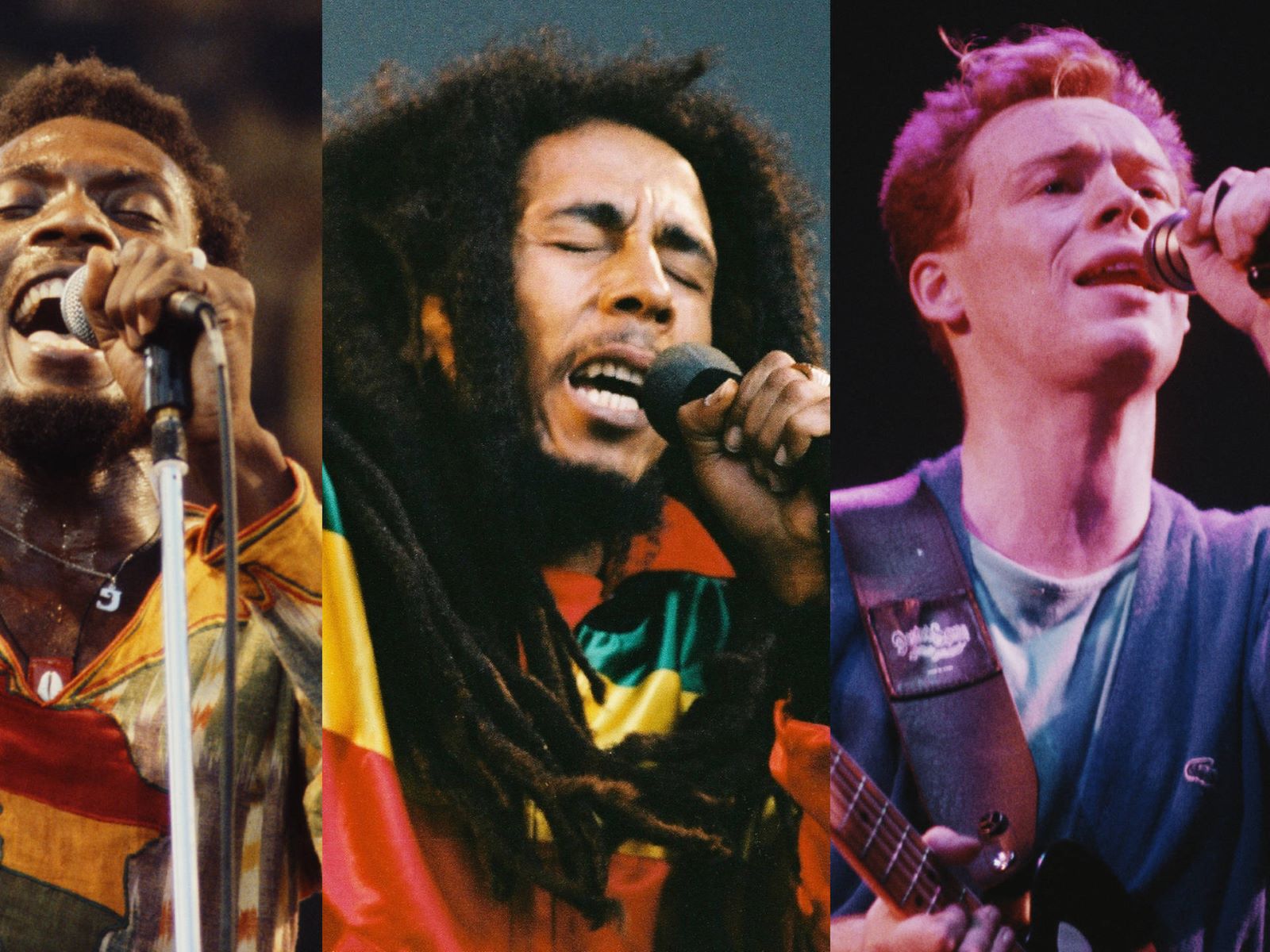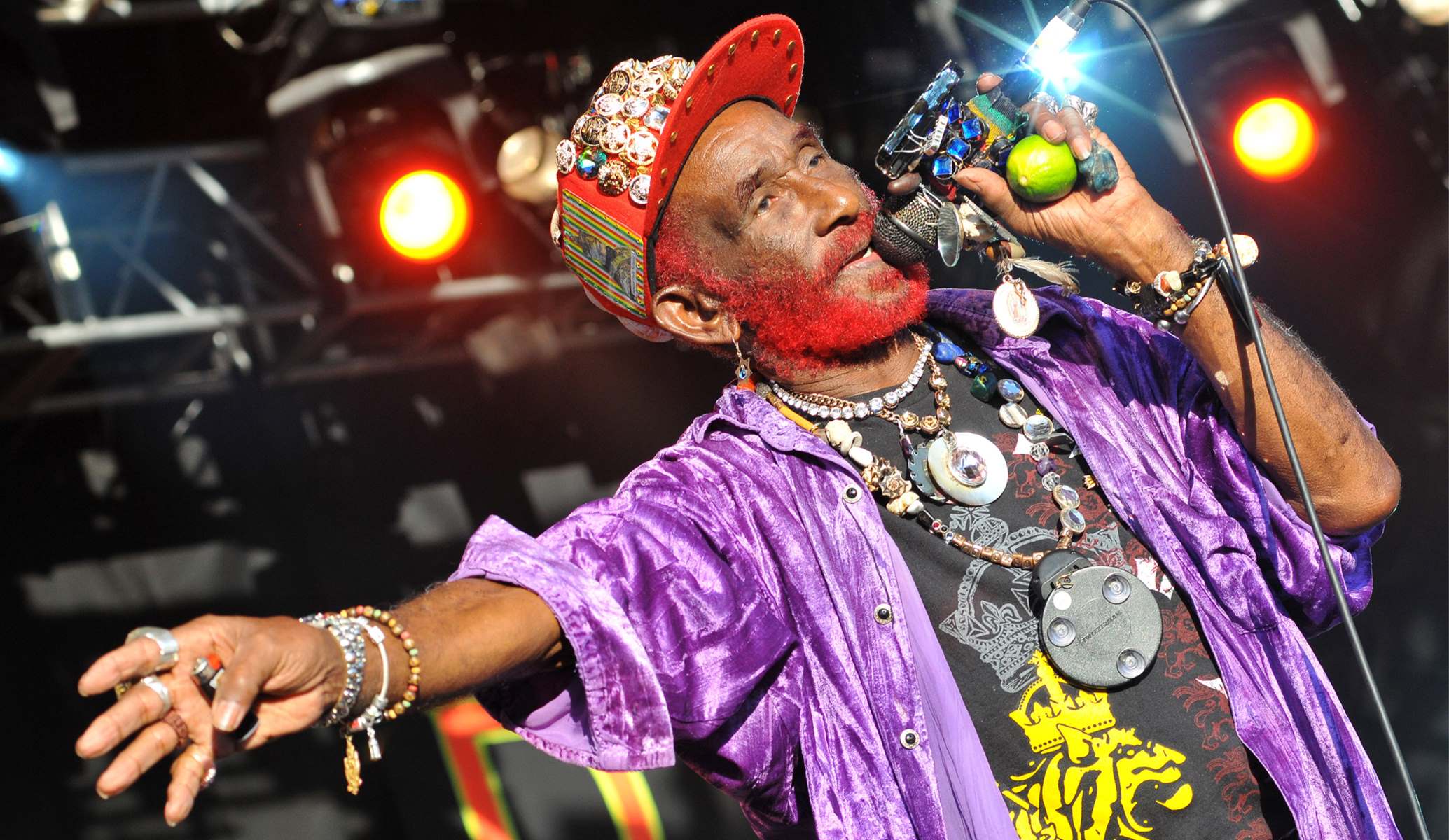

Reggae
Who Invented Reggae Music
Modified: February 18, 2024
Discover the roots of Reggae, the iconic music genre that emerged in Jamaica. Learn about the talented artists, cultural influences, and the impact of Reggae worldwide.
(Many of the links in this article redirect to a specific reviewed product. Your purchase of these products through affiliate links helps to generate commission for AudioLover.com, at no extra cost. Learn more)
Table of Contents
Introduction
Reggae music is a genre that has captivated listeners around the world with its infectious rhythms, powerful lyrics, and vibrant spirit. Originating in Jamaica in the late 1960s, reggae has its roots deeply intertwined with the cultural and social fabric of the island. This unique style of music has gained global recognition and has become synonymous with the relaxed, laid-back vibe of Jamaican culture.
Reggae music is more than just a genre; it is an expression of the struggles, triumphs, and resilience of the Jamaican people. From its humble beginnings in the impoverished neighborhoods of Kingston, reggae has evolved into a global phenomenon that has influenced countless musicians and inspired social movements.
The infectious beats of reggae, characterized by its distinctive rhythm guitar patterns, syncopated bass lines, and off-beat accents, create a groovy and hypnotic sound that is instantly recognizable. However, it is the conscious and thought-provoking lyrics that set reggae apart from other genres. The lyrics of reggae music often address social and political issues, showcasing a deep connection to the struggles faced by the Jamaican people.
Reggae music emerged during a time of significant social and political change in Jamaica. The country was grappling with the aftermath of gaining independence from colonial rule and navigating its newfound identity as a sovereign nation. It was against this backdrop that reggae music provided a voice for the marginalized and oppressed, giving a platform to the unheard voices of the Jamaican people.
This article will delve into the origins of reggae music, explore its early influences, discuss the birth of reggae in Jamaica, highlight the pioneers of the genre, examine its impact and evolution, and explore its global spread. By the end, you will have a comprehensive understanding of the rich history and significance of reggae music.
Origins of Reggae Music
The roots of reggae music can be traced back to the fusion of various musical styles in Jamaica, including mento, ska, and rocksteady. Mento, a traditional Jamaican folk music, laid the foundation for the upbeat and catchy rhythms that would later define reggae.
In the early 1960s, ska emerged as a popular music style in Jamaica. Influenced by American R&B and jazz, ska featured fast-paced rhythms and an emphasis on syncopation. It became the soundtrack of the vibrant dancehall scene in Kingston, captivating listeners with its energetic and infectious sound.
As the 1960s progressed, ska evolved into rocksteady, characterized by a slower tempo and a heavier emphasis on the bassline. This transition from ska to rocksteady marked a pivotal turning point in the development of reggae music. The slower pace of rocksteady allowed for greater creativity and experimentation, paving the way for the distinctive reggae sound to emerge.
Reggae music, as we know it today, began taking shape in the late 1960s. It was during this time that artists and musicians started incorporating elements of soul, rhythm and blues, and African drumming into their music. The result was a unique fusion of influences that gave reggae its signature sound.
One of the key figures credited with shaping the sound of reggae is legendary Jamaican producer and record label owner, Clement “Sir Coxsone” Dodd. His iconic Studio One records became a breeding ground for many reggae artists, providing a platform to experiment and innovate with the genre.
Another pivotal figure in the origins of reggae was Lee “Scratch” Perry. As a producer and musician, Perry played a significant role in pushing the boundaries of reggae music. His use of unconventional studio techniques, such as dubbing and sound effects, helped to create a distinct sonic landscape that would go on to influence generations of musicians.
Reggae music was deeply influenced by the social and political climate of Jamaica during that time. Many artists used their music as a means to highlight the social injustices and issues faced by the Jamaican people. The lyrics often addressed themes of poverty, inequality, and the struggle for liberation.
The origins of reggae music are a testament to the resilience and creativity of the Jamaican people. From the humble beginnings of mento and ska, reggae has grown into a powerful and influential genre that continues to inspire and captivate listeners worldwide.
Early Influences on Reggae
Reggae music is a product of various musical influences that shaped its unique sound and style. In addition to the local Jamaican genres like mento, ska, and rocksteady, reggae was also influenced by international music styles and cultural movements.
One significant influence on reggae was American rhythm and blues (R&B). Jamaican artists were exposed to R&B through radio broadcasts and recordings, and they began fusing elements of R&B into their music. The syncopated rhythms and soulful melodies of R&B served as a foundation for the development of reggae.
The rise of soul music in the 1960s also had a profound impact on the evolution of reggae. Artists like Otis Redding, Sam Cooke, and Ray Charles brought a soulful and emotive vocal style that resonated with Jamaican musicians. The emotional depth and storytelling aspect of soul music influenced reggae artists to infuse their music with heartfelt lyrics and passionate delivery.
African music played a crucial role in shaping the rhythmic elements of reggae. The influence of African drumming and percussion can be heard in the distinctive rhythm guitar patterns and drum beats of reggae music. These African-inspired rhythms gave reggae its infectious and danceable groove.
The Rastafari movement, which emerged in Jamaica in the early 1930s, also had a profound influence on reggae music. Rastafarian beliefs, grounded in African spirituality and liberation theology, became an integral part of the reggae culture. Many reggae artists embraced Rastafari and incorporated its teachings into their music, addressing themes of spirituality, social justice, and African consciousness.
Another important influence on reggae was the political and social climate of Jamaica. The country was experiencing significant social upheaval and political unrest during the 1960s and 1970s. Artists used their music as a vehicle for social commentary, denouncing inequality, oppression, and corruption. The lyrics became a powerful tool for articulating the struggles and aspirations of the Jamaican people.
The fusion of these various musical and cultural influences laid the foundation for the birth of reggae. The genre’s distinct rhythmic patterns, conscious lyrics, and unique vocal style set it apart from other genres. Reggae’s ability to transcend borders and speak to the universal human experience is a testament to the diverse influences that shaped its sound.
The Birth of Reggae in Jamaica
Jamaica, a small island in the Caribbean, became the birthplace of reggae music in the late 1960s. The emergence of this iconic genre was a reflection of the social and political climate of the time, as well as the artistic innovations of local musicians.
Jamaica’s vibrant music scene, influenced by various genres such as mento, ska, and rocksteady, provided a fertile ground for the birth of reggae. It was during this period that a shift occurred, giving rise to a new sound that would capture the hearts of both Jamaicans and the world.
Reggae music took shape in the impoverished neighborhoods of Kingston, the capital of Jamaica. It was in these neighborhoods that countless artists, musicians, and producers honed their craft and experimented with new sounds. The music became a means of coping with the hardships of daily life and served as a form of cultural expression.
One of the key factors in the birth of reggae was the development of new recording techniques. Jamaican artists and producers sought innovative ways to create a distinct sound that would set reggae apart from its predecessors. Techniques such as remixing, dubbing, and the use of studio effects helped shape the sonic landscape of reggae music.
The role of producers, such as Clement “Sir Coxsone” Dodd, Lee “Scratch” Perry, and Bunny Lee, cannot be overstated in the birth of reggae. These individuals played a pivotal role in nurturing and promoting talented artists, providing them with the platform to showcase their music. Record labels like Studio One, Trojan Records, and Island Records became synonymous with reggae’s early development.
Reggae’s birth was also closely tied to the rise of influential artists who would shape the genre’s trajectory. The Wailers, consisting of Bob Marley, Peter Tosh, and Bunny Wailer, played a significant role in popularizing reggae music both locally and internationally. Their socially conscious lyrics, combined with irresistible grooves and powerful vocal performances, resonated with audiences worldwide.
The message of reggae music extended beyond entertainment; it became a vehicle for social change and empowerment. The lyrics addressed issues of poverty, racial inequality, and political oppression, serving as a rallying cry for unity and justice. From Bob Marley’s iconic anthem “Get Up, Stand Up” to Jimmy Cliff’s uplifting “The Harder They Come,” reggae became a voice for the marginalized and disenfranchised.
The birth of reggae in Jamaica marked a cultural revolution, uniting a nation under the powerful vibrations of the music. It provided a voice for the voiceless and a means of self-expression for a generation longing for change. The impact of reggae’s birth in Jamaica would extend far beyond the shores of the island, captivating hearts and inspiring movements across the globe.
Pioneers of Reggae Music
The evolution and popularity of reggae music would not have been possible without the contributions of several trailblazing artists who paved the way for the genre’s success. These pioneers of reggae played a significant role in shaping its sound, spreading its message, and establishing it as a powerful force in the music industry.
Bob Marley is undoubtedly one of the most influential figures in reggae music. His soul-stirring vocals, poignant lyrics, and charismatic stage presence propelled reggae to international fame. Marley’s timeless hits like “No Woman, No Cry,” “Redemption Song,” and “One Love” have become anthems for social justice and unity. His legacy as a cultural icon and his advocacy for peace and equality continue to inspire generations of musicians.
Another pioneer of reggae was Jimmy Cliff, whose breakthrough film “The Harder They Come” introduced reggae to a global audience. Cliff’s powerful voice and authentic storytelling captivated listeners, and his hit songs like “Many Rivers to Cross” and “You Can Get It If You Really Want” remain classics within the reggae canon.
Peter Tosh, a former member of Bob Marley’s band The Wailers, was also instrumental in popularizing reggae music. Tosh’s rebellious spirit and politically charged lyrics addressed topics like apartheid, marijuana legalization, and social inequality. Hits like “Legalize It” and “Equal Rights” established Tosh as a fierce advocate for justice and a vital voice in the reggae movement.
The contributions of female artists to the reggae genre should not be overlooked. Marcia Griffiths, known as the “Queen of Reggae,” has made significant contributions to the music industry. With her soulful voice and empowering lyrics, Griffiths has been a revered figure in Jamaican music for over five decades. Her collaboration with Bob Andy on the timeless hit “Young, Gifted and Black” remains a testament to her talent and influence.
Toots Hibbert and his band Toots and the Maytals were instrumental in popularizing reggae music internationally. Known for their energetic live performances and catchy hits like “Pressure Drop” and “54-46 That’s My Number,” Toots and the Maytals helped to spread reggae’s infectious grooves to audiences around the world.
Other notable pioneers of reggae include Desmond Dekker, Derrick Morgan, and Prince Buster, who contributed to the early development of the genre. Their innovative sounds and catchy melodies laid the foundation for the reggae music we know and love today.
The collective contributions of these pioneers helped shape reggae into a powerful and influential genre. Their creative genius, social consciousness, and ability to connect with audiences have left an indelible mark on the music industry. Their music continues to inspire and resonate with listeners, reaffirming the enduring legacy of reggae’s founding artists.
Impact and Evolution of Reggae
Reggae music has had a profound impact on both the music industry and society as a whole. From its humble beginnings in Jamaica to its global popularity, reggae’s influence continues to resonate with people around the world. The genre’s evolution has seen it adapt to new musical trends while maintaining its core principles and message.
One of the significant impacts of reggae is its ability to transcend cultural boundaries. Reggae’s groovy rhythms and heartfelt lyrics have resonated with people across different backgrounds, languages, and cultures. Its universal themes of love, unity, and social justice have made it a powerful tool for inspiring change and fostering a sense of community.
Reggae’s impact on the music industry cannot be overstated. The genre’s distinctive sound has influenced countless musicians in a wide range of genres, including pop, rock, hip-hop, and electronic music. Elements of reggae can be heard in the music of artists such as The Police, Sublime, Lauryn Hill, and Rihanna, to name just a few.
The impact of reggae musicians extends beyond their musical contributions. Artists like Bob Marley and Peter Tosh used their platform to advocate for social and political change. Their lyrics addressed issues such as poverty, oppression, and racial inequality, making them powerful voices for the marginalized and oppressed.
The evolution of reggae music has seen the genre embrace new styles and influences. In the 1980s, dancehall emerged as a subgenre of reggae, characterized by its fast-paced rhythms and DJ-style toasting. Dancehall brought a new energy and lyrical style to reggae, expanding its reach and further diversifying the genre.
Reggae fusion, a genre that blends reggae with elements of other genres like hip-hop, R&B, and pop, has also gained popularity in recent years. Artists like Sean Paul, Shaggy, and Damian “Jr. Gong” Marley have successfully merged reggae with contemporary styles, reaching a wider audience and introducing new listeners to the genre.
The impact of reggae music extends beyond the realms of entertainment. It has been an instrumental force in social and political movements, promoting equality, justice, and peace. For example, the One Love Peace Concert in 1978, organized by Bob Marley, brought together political rivals in Jamaica and symbolized hope for the nation.
Moreover, the iconic image of reggae, with its Rastafarian influences, has become synonymous with Jamaican culture and its laid-back lifestyle. The red, gold, and green colors, the lion imagery, and the iconic dreadlocks have become symbols of reggae and are recognized worldwide.
The impact and evolution of reggae continue to shape the cultural landscape. Its message of love, unity, and social consciousness resonate with listeners, reminding us of the power that music holds to bring about positive change. Reggae’s enduring legacy serves as a testament to its relevance and influence in the world.
Global Spread of Reggae Music
Reggae music, born in Jamaica, has transcended its island origins to become a global phenomenon embraced by people around the world. The infectious rhythms, captivating melodies, and powerful messages of reggae have resonated with listeners from diverse cultures and backgrounds. The global spread of reggae can be attributed to several key factors that have contributed to its popularity and influence in different parts of the world.
One of the driving forces behind the global spread of reggae music is the diaspora of Jamaicans and the influence of Jamaican culture in various countries. Jamaican immigrants brought their music and cultural traditions with them as they settled in places like the United Kingdom, the United States, Canada, and throughout the Caribbean. These communities fostered a love for reggae music and helped to create local reggae scenes, hosting concerts, festivals, and club nights dedicated to the genre.
The music industry also played a significant role in the global spread of reggae. Record labels, such as Island Records, played a pivotal role in promoting reggae artists internationally. The breakthrough success of artists like Bob Marley exposed reggae to new audiences and paved the way for other Jamaican artists to follow in his footsteps. In addition, international collaborations between reggae artists and mainstream musicians introduced reggae to new fan bases, contributing to its global reach.
Reggae’s message and themes of social justice, peace, and unity have resonated with people worldwide, particularly those who have experienced marginalization and oppression. Reggae’s lyrics speak to the struggles faced by communities around the globe, fostering a sense of solidarity and empowerment. Its positive and uplifting message has helped to create a global reggae community that transcends geographical boundaries.
Reggae festivals and events have played a pivotal role in spreading the genre to different corners of the world. Events such as the Reggae Sumfest in Jamaica, the Rototom Sunsplash in Spain, and the Rebel Salute in Jamaica have attracted international audiences and showcased the best in reggae music. These festivals have become important cultural gatherings, celebrating the spirit of reggae and providing a platform for both established and emerging artists.
The internet and digital platforms have also played a significant role in the global dissemination of reggae music. Through streaming services, social media, and online communities, reggae music is now more accessible than ever before. Fans can discover new reggae artists, connect with other enthusiasts, and engage with the music regardless of their geographical location.
Reggae’s influence can be seen in various music genres around the world. Artists in genres such as pop, rock, hip-hop, and electronic music incorporate reggae elements into their music, infusing their own unique styles with the infectious rhythms of reggae. This cross-pollination of musical styles has further expanded the reach of reggae and introduced it to new audiences.
The global spread of reggae music has not only enriched the cultural landscape of countries around the world but has also given a platform to artists to share their stories and messages of hope. Reggae’s universal appeal lies in its ability to transcend language barriers and connect people through its positive vibrations. As reggae continues to evolve and adapt to new musical trends, its global influence remains a testament to its enduring power.
Conclusion
Reggae music, born in the vibrant neighborhoods of Kingston, Jamaica, has evolved into a global phenomenon that has captured the hearts and minds of people around the world. Its infectious rhythms, powerful lyrics, and cultural significance have made reggae a genre like no other.
From its origins in the fusion of mento, ska, and rocksteady, reggae music has grown and evolved, influenced by a myriad of musical styles and social movements. It has been shaped by the creative genius of artists like Bob Marley, Jimmy Cliff, Peter Tosh, and many others, who used their music as a platform for social commentary and empowerment.
The impact of reggae music extends beyond the realms of entertainment. It has been instrumental in social and political movements, advocating for equality, justice, and unity. Reggae’s universal themes of love, peace, and resilience have resonated with audiences worldwide, forging connections and sparking movements for change.
The global spread of reggae can be attributed to various factors, including the influence of Jamaican diaspora communities, the support of record labels, the power of collaborations, the strength of reggae festivals, the reach of the internet, and the genre’s ability to speak to the universal human experience.
Reggae’s influence can be heard in a multitude of music genres, and its cultural impact has left an indelible mark on societies around the world. The red, gold, and green colors, the lion imagery, and the iconic dreadlocks have become symbols of reggae, representing its values and cultural identity.
In conclusion, reggae music is more than just a genre; it is a cultural force that has transcended borders and brought people together. Its powerful rhythms, conscious lyrics, and uplifting spirit have inspired generations and will continue to do so in the years to come. As reggae evolves and adapts to new musical landscapes, its legacy as a vehicle for change and understanding remains strong.

